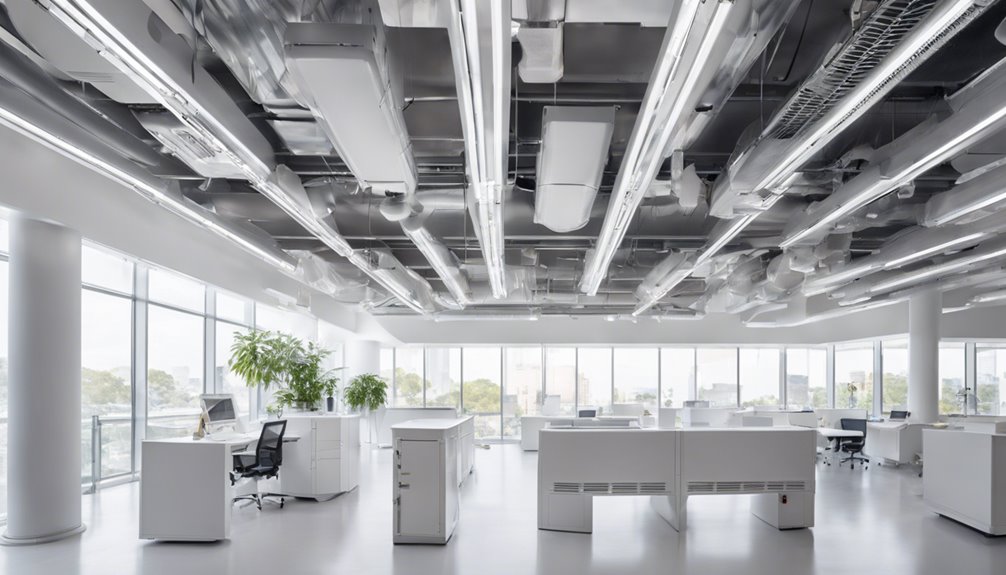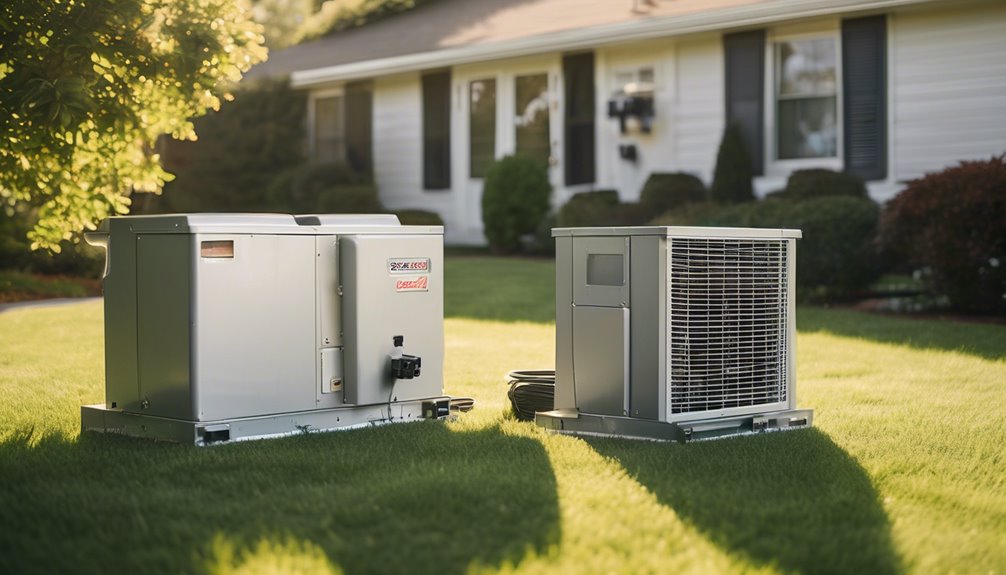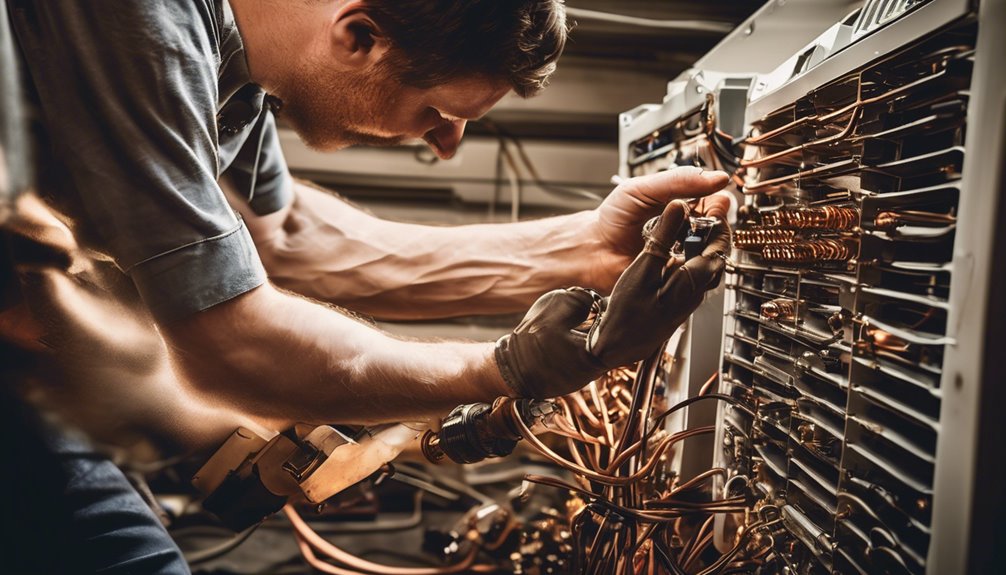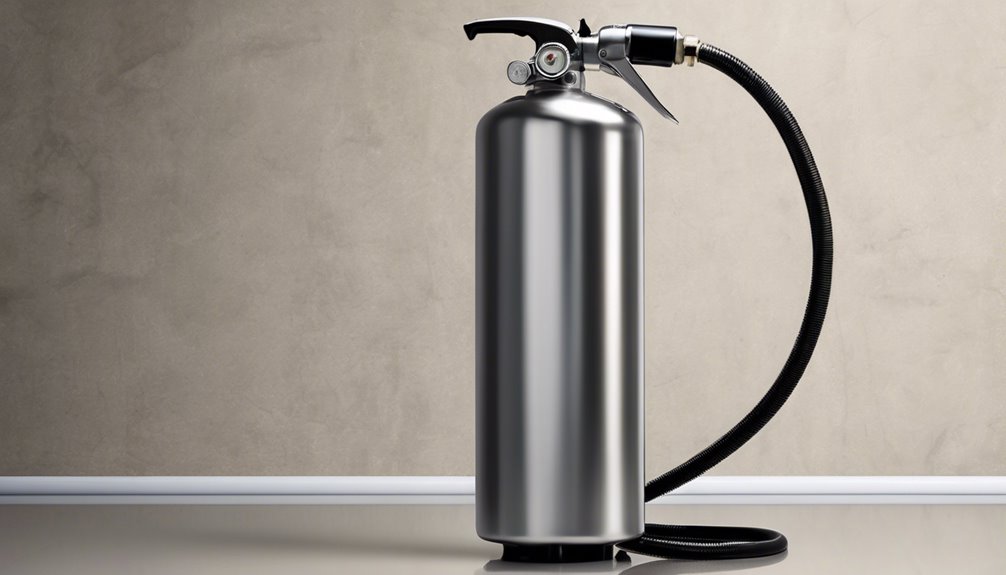As a business owner, you know how crucial it is to maintain a comfortable indoor climate. That's why investing in expert commercial air conditioning installation solutions is key to achieving this goal while minimizing downtime and energy waste. A customized solution considers your unique cooling needs, ensuring optimal system performance and energy efficiency. By doing so, you'll not only reduce energy bills but also extend the lifespan of your system. Discover how to design and install a tailored solution that meets your business's specific requirements, and get ready to reap the benefits of a well-functioning air conditioning system.
Key Takeaways
- A customized commercial air conditioning installation solution is designed based on a thorough system requirements assessment and site survey.
- A seamless installation process ensures minimal disruption to daily operations, with project managers working closely with clients to schedule installation.
- Energy-efficient systems and components are used to maximize energy savings and minimize costs, with options like zoning systems and smart thermostats.
- Regular maintenance and system diagnosis are crucial to prevent system failures, leaks, and component faults, reducing energy bills and minimizing disruptions.
- Expert installation and maintenance services identify and fix system issues promptly, ensuring optimal system performance and extending the lifespan of the air conditioning system.
Understanding Your Commercial Cooling Needs
Every commercial property, regardless of its size, requires a reliable cooling system to maintain a comfortable indoor climate.
When it comes to understanding your commercial cooling needs, you need to consider the cooling capacity of your system. The cooling capacity determines how effectively your system can cool your space.
You don't want a system that's too small, leaving your employees and customers feeling hot and uncomfortable. On the other hand, a system that's too large will waste energy and increase your utility bills.
Proper system sizing is crucial to ensure your system operates efficiently and effectively. You need to calculate the cooling load of your building, taking into account factors like occupancy, insulation, and window size, to determine the right cooling capacity for your system.
Choosing the Right System for Your Business
Now that you've determined your commercial cooling needs, it's time to select a system that meets those needs.
You must consider your business climate and the number of people occupying the space to ensure you choose the right system. For example, a server room requires a more precise temperature control than an open office space.
You'll also need to consider the cooling capacity required to maintain a comfortable temperature. A system that's too small won't effectively cool your space, while one that's too large will waste energy and increase your costs.
Designing a Customized Air Conditioning Solution
As you prepare to install a commercial air conditioning system, you'll need to design a customized solution that meets your unique business needs.
This process starts with a thorough system requirements assessment, which helps identify the specific cooling demands of your space.
System Requirements Assessment
How complex is your commercial space, and what're its unique cooling needs? You might've specific requirements, such as varying temperature zones or special equipment considerations.
To determine the perfect air conditioning solution for your business, our experts conduct thorough system requirements assessments.
This involves commercial audits to identify energy inefficiencies and system surveys to analyze your space's cooling demands.
We'll examine factors like your building's layout, insulation, and window orientation to understand how they impact your cooling needs.
Customized AC Design
With your unique system requirements established, our experts get to work designing a customized air conditioning solution tailored to your business's specific needs.
This involves a thorough analysis of your space, taking into account factors such as layout, occupancy, and equipment heat loads.
Our team uses advanced tools, including acoustic analysis and system visualization, to create a precise design that meets your cooling demands.
- We create detailed 2D and 3D models to visualize your system's performance and identify potential issues
- Our experts select the most suitable equipment and components to ensure optimal efficiency and reliability
- We optimize ductwork and piping layouts to minimize energy losses and reduce installation costs
- We ensure that your system complies with relevant building codes and regulations
- We provide you with a comprehensive design report outlining our recommendations and system specifications
Seamless Installation Process for Minimal Disruption
You expect a hassle-free installation process that won't disrupt your daily operations or disturb your customers.
Our team of experts ensures a seamless installation process that meets your unique needs. We prioritize time management and project planning to minimize downtime and ensure your business remains operational throughout the installation.
Our project managers work closely with you to schedule the installation at a time that suits you best, ensuring minimal disruption to your daily activities.
With a well-planned and executed installation process, you can focus on running your business while we handle the installation of your commercial air conditioning system. Our goal is to get you up and running quickly, efficiently, and with minimal hassle.
Energy Efficiency and Cost Savings Opportunities
A commercial air conditioning system that's both efficient and cost-effective is crucial for your business's bottom line.
You want to maximize energy efficiency while minimizing costs. Our experts can help you achieve this by conducting energy audits to identify areas of improvement.
This can lead to significant reductions in your carbon footprint and energy bills.
Some energy-saving opportunities to consider include:
- Upgrading to energy-efficient equipment and components
- Implementing zoning systems to reduce energy waste
- Installing smart thermostats for optimized temperature control
- Using energy-recovery ventilation systems to reduce heating and cooling demands
- Incorporating natural ventilation strategies to reduce the need for mechanical cooling
Ensuring Optimal System Performance and Maintenance
Regular maintenance is key to extending the lifespan of your commercial air conditioning system and preventing costly repairs.
By staying on top of maintenance, you'll ensure your system runs efficiently and effectively. One crucial aspect of maintenance is air quality monitoring, which involves checking for contaminants and pollutants in the air.
This helps maintain a healthy indoor environment and prevents damage to your system. Additionally, conducting regular system longevity analysis helps identify potential issues before they become major problems.
This proactive approach saves you time and money in the long run. By prioritizing maintenance, you'll enjoy optimal system performance and extend the life of your commercial air conditioning system.
Benefits of Regular Maintenance and Servicing
The benefits of regular maintenance and servicing for your commercial air conditioning system are twofold.
You'll not only prevent unexpected breakdowns and costly repairs, but also ensure your system operates at peak efficiency.
Regular maintenance is crucial for maintaining good air quality, which is essential for the health and comfort of your employees and customers.
Some key benefits of regular maintenance and servicing include:
- Improved system efficiency, reducing energy consumption and costs
- Extended system lifespan, delaying the need for replacement
- Enhanced air quality, promoting a healthier indoor environment
- Seasonal checks to prepare your system for changing weather conditions
- Identification and resolution of minor issues before they become major problems
Upgrading or Replacing Your Existing System
You're likely considering upgrading or replacing your existing commercial air conditioning system if it's no longer meeting your needs or has become inefficient.
A thorough system analysis can help identify areas for improvement, determining whether an upgrade or replacement is necessary. Our experts will assess your current system, evaluating equipment compatibility and identifying potential issues.
We'll then provide recommendations for the most cost-effective and efficient solution, taking into account your specific needs and budget.
By upgrading or replacing your system, you can expect improved performance, reduced energy consumption, and increased productivity.
Our team will guide you through the process, ensuring a seamless transition to a more efficient and effective commercial air conditioning system.
Commercial Air Conditioning System Repairs and Troubleshooting
When your commercial air conditioning system breaks down, you need to identify the problem quickly to minimize disruptions to your business.
You'll want to troubleshoot issues like system failures, leaks, and faulty components to determine the root cause of the problem.
Identifying System Failures
How can you be certain that your commercial air conditioning system is on the brink of failure or has already failed?
Sometimes, it's not immediately obvious. That's why it's essential to perform regular system diagnosis to identify failure indicators.
Here are some signs that your system is in trouble:
- Unusual noises or vibrations coming from the unit
- Increased energy bills or reduced airflow
- Water leaks or ice buildup around the system
- Foul odors or mold growth near the vents
- Sudden or frequent shutdowns
Fixing Leaks and Drips
Identifying system failures is only half the battle – once you've pinpointed the problem, it's time to take action.
Now, you need to fix those pesky leaks and drips that are causing your commercial air conditioning system to malfunction. You'll want to employ effective leak detection methods to identify the source of the issue. This might involve using specialized equipment or inspecting the system visually.
Once you've located the leak, you can develop a plan to fix it. Implementing drip prevention strategies, such as regular maintenance and cleaning, can also help prevent future issues.
Replacing Faulty Components
Can you afford to let faulty components hold your commercial air conditioning system back?
A faulty component can lead to inefficient cooling, increased energy bills, and even complete system failure.
To avoid these issues, it's crucial to identify and replace faulty components promptly.
Our expert technicians specialize in component diagnosis and faulty identification.
We'll locate the problematic parts and replace them with high-quality alternatives to get your system running smoothly again.
Some common faulty components we replace include:
- Capacitors
- Contactors
- Compressors
- Fan motors
- Thermostats
Frequently Asked Questions
Can I Install a Commercial AC System Myself to Save Money?
You're tempted to install a commercial AC system yourself to save money, but beware of DIY pitfalls like incorrect sizing and improper installation, which can lead to cost overruns and a system that doesn't cool efficiently.
How Long Does a Typical Commercial Air Conditioning Installation Take?
You're wondering how long it'll take to get your new commercial AC system up and running. The answer depends on the system's complexity and the number of installation phases involved, which can range from a few days to several weeks or even months.
Are There Any Rebates or Incentives for Energy-Efficient Systems?
When you invest in energy-efficient systems, you'll likely qualify for green incentives and utility rebates. You'll find federal, state, and local programs offering significant savings; for instance, the EPA's Energy Star program provides rebates on certified products.
Can I Use a Residential AC Unit for My Small Commercial Space?
You're considering using a residential AC unit for your small commercial space, but you'll need to ensure it can handle the unique demands of your business. Space constraints and unit compatibility are key factors to consider before making a decision.
Is It Necessary to Replace the Entire System or Can I Repair It?
You're wondering if repairing your current system is enough or if a full replacement is necessary. Start by doing a cost analysis and system evaluation to determine the most cost-effective solution, considering factors like energy efficiency and system age.
Conclusion
You've made a significant investment in your commercial air conditioning system, and now it's time to reap the benefits. With a properly installed and maintained system, you can enjoy improved indoor air quality, increased productivity, and significant energy savings. By partnering with a trusted expert, you'll have peace of mind knowing your system is running efficiently and effectively, allowing you to focus on what matters most – growing your business.



